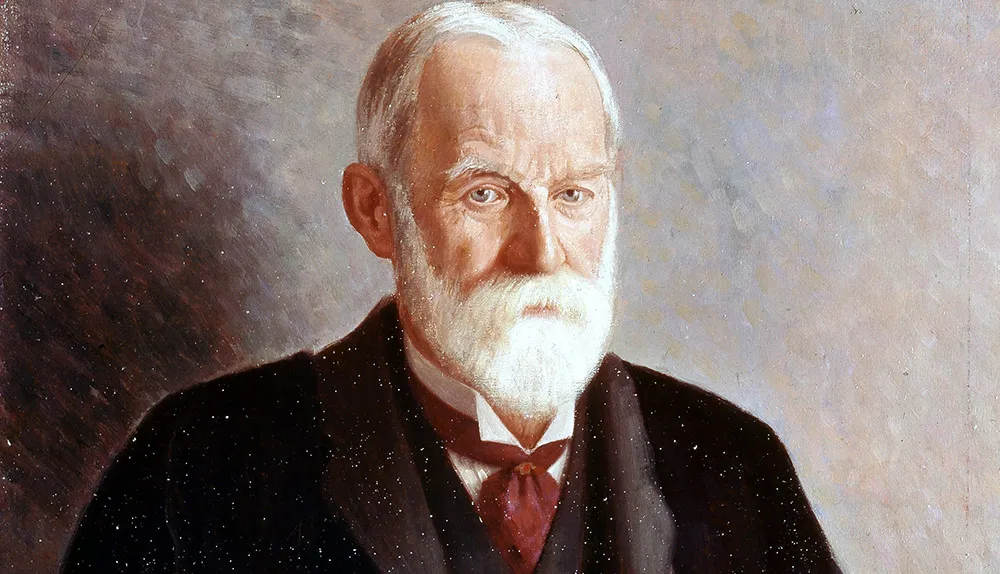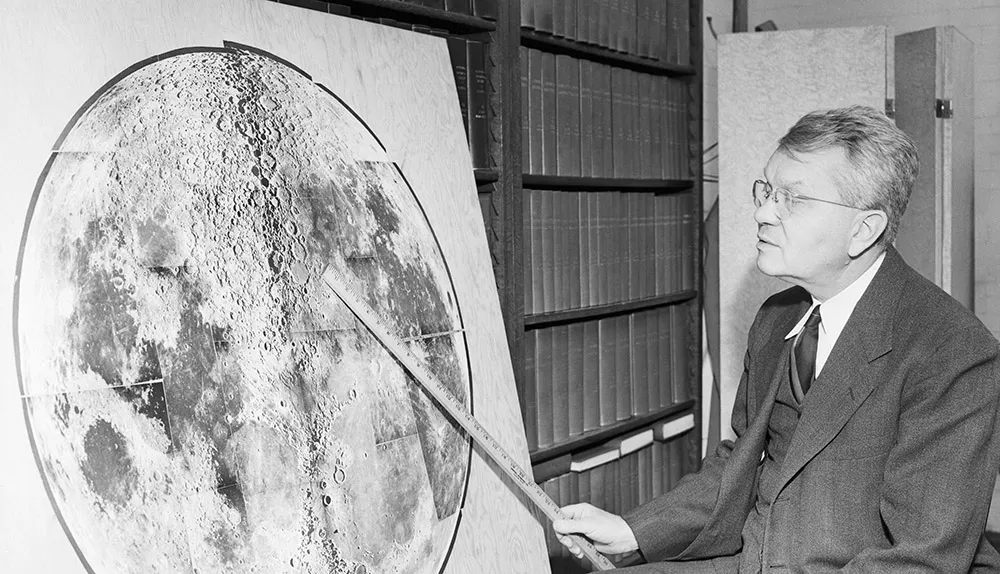1
George Darwin
(1845–1912)

The fifth child of Charles Darwin, George became a respected mathematician and astronomer in his own right. Although chiefly remembered today for his fission theory of the Moon’s formation, he also did important work on the origins of tidal forces and the ‘three body problem’, describing the gravitational relationships of the Earth, Moon and Sun.
2
Reginald Aldworth Daly
(1871–1957)
This influential Canadian geologist began his career studying rocks along the US-Canadian border. His invention of the giant impact hypothesis is often overshadowed by his contributions to our understanding of igneous rocks and his support for the theory of continental drift.
3
Gerard Kuiper
(1905–73)

Dutch-born Kuiper was one of the 20th Century’s leading planetary astronomers, discovering moons of Uranus and Neptune and first identifying carbon dioxide in the atmosphere of Mars. He was an influential figure at NASA during the first wave of interplanetary space probes, and helped select the Apollo lunar landing sites.
Read more about the origins of the Moon:
4
Harold Urey
(1893–1981)

This US chemist made a name early in his career with the discovery and isolation of deuterium, the heavy isotope of hydrogen, and went on to play an important role in the development of the atom bomb. As well as promoting the capture hypothesis of lunar origins, he is famous for experiments with Stanley Miller that investigated the origins of life on Earth.
5
William K Hartmann and Donald R Davis
(1939-)

Hartmann and Davis are two of today’s most respected planetary scientists, not least due to their involvement in the giant impact hypothesis. Hartmann is concerned with the evolution of planetary surfaces, while Davis works mostly on the evolution of the Solar System’s smaller bodies.